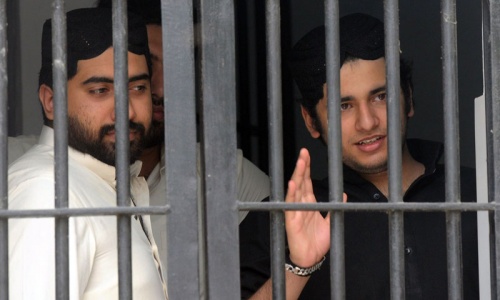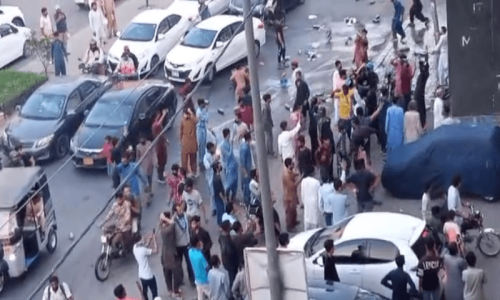Shahzeb Khan's killers pardoned by family

KARACHI: The parents of university student Shahzeb Khan, whose death sparked outrage against the abuse of power by the wealthy and landed in Pakistan, have decided to pardon the culprits responsible for the murder of their son, their lawyer said Monday.
The family filed an affidavit with the court several days ago pardoning the men accused of killing their only son, lawyer Mehmood Alam Rizvi said.
The victim’s parents – father Deputy Superintendent of Police Aurangzeb Khan and mother Ambreen Aurangzeb – have also requested for the release of the four perpetrators involved.
Speaking to DawnNews, the victim’s mother Ambreen Aurangzeb said the death of Shahzeb’s killers will not bring back her son. “We may not have forgiven them in our hearts, but we have pardoned our son’s killers in the name of Allah,” she said.
She said she had pardoned the killers as she was still not convinced that the culprits would be punished even after their arrest and convictions. “We cannot spend our entire lives in fear … we took the decision considering the circumstances.”
The two men convicted, Shahrukh Jatoi and Siraj Talpur, come from wealthy families in Karachi. They were convicted of killing the 20-year-old Khan on the night of December 24, 2012 after the university student had an argument with one of Talpur's servants. Jatoi and Talpur were sentenced to death while life-long jail terms were awarded to Sajjad Talpur and Ghulam Murtaza Lashari, two men convicted of aiding the killers.
The killing led to an unusual social media campaign demanding the country’s rich and powerful be held accountable for their acts.
Pakistani law has a maximum punishment of the death penalty, or life in prison for a murder. But, under Islamic laws of Qisas and Diyat, victim families can strike an out-of-court deal with the murderers. In that case, the victim's families generally appear in court to testify that they have pardoned the murderer in the name of God.
These pardons often include the accused paying the victim's families money but in this case the lawyer said the victims' family did not accept any payment.
The court must now decide whether to accept the pardon, but judges generally follow the decision of the family.
In the affidavit filed with Sindh High Court, the family states that they have decided to pardon the culprits “in the name of Allah”, and therefore the court is obligated to do likewise. It further states that the parents of both the parties have come to an understanding outside of court.
Khan’s parents moreover insist that they were under no pressure when filing the request, and have also decided not to accept any blood money from the culprit’s families.
The court’s writ branch has asked Khan’s family to present another copy of the request in court. A final decision regarding the pardon will be taken by the court.













































